Is ABA Therapy Only For Autism? 6 Myths
ABA therapy is a therapeutic approach that can help children and adults with a wide variety of challenges, not just autism.

Is ABA Therapy Only For Autism?
No, Applied Behavior Analysis (ABA) is a therapeutic approach that is used to help children and adults with a wide variety of challenges.
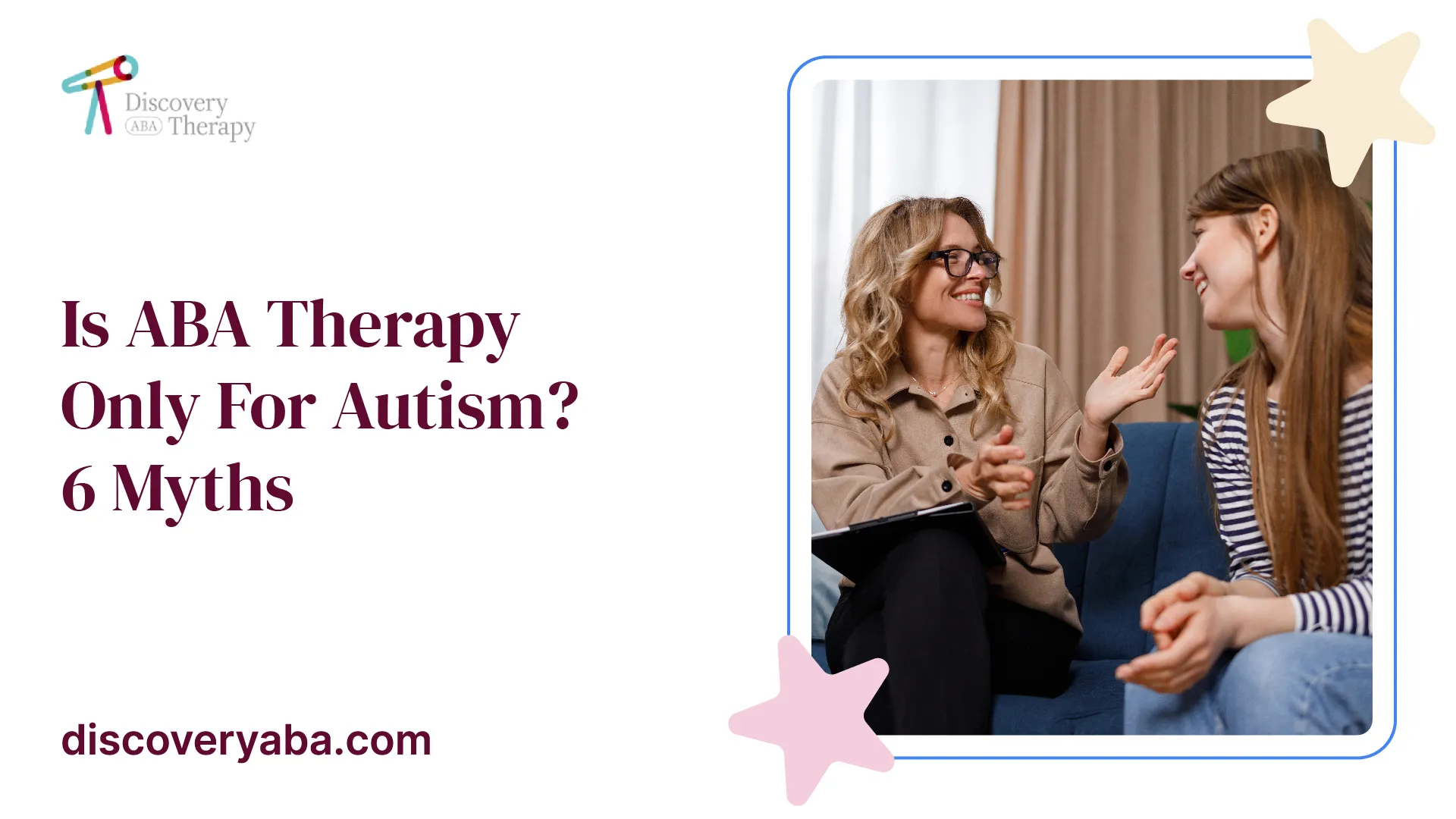
Autistic individuals are commonly treated with ABA therapy, but the technique can be applied for many other conditions such as attention-deficit/hyperactivity disorder (ADHD), anxiety disorders, learning disabilities, substance abuse problems, and developmental disabilities.
Furthermore, ABA can even be useful for those who do not have any diagnosed issues or disorders but simply need assistance in their everyday lives.
Parents may use it to provide better guidance on decision making and problem solving skills in their children. Educators might rely on it to teach students new concepts or materials more effectively.
By understanding why someone does something or reacts in a particular way, ABA can be used to create better outcomes and improve overall functioning.
Therefore, ABA is a versatile therapy that can be applied to people of all ages and backgrounds with various needs. Ultimately, this allows for more tailored solutions and potential success.
However, it is important to note that not everyone will respond the same way or even benefit from ABA techniques; therefore, it’s crucial to consult with a qualified professional before trying any form of treatment.
Additionally, ABA should always be conducted in conjunction with other therapies and treatments as necessary so that the best possible outcome can be achieved for each individual case.
With proper guidance and knowledge of Applied Behavior Analysis, many individuals have seen positive changes in their lives.
ABA therapy is not just limited to those with autism, but can be beneficial for many different conditions. It offers a chance to better understand why we do what we do, thus allowing us to become more aware and self-regulate our behavior in order to reach our goals.
Ultimately, ABA is an effective way of tackling challenges that may otherwise seem insurmountable. Through the right guidance and dedication, it is possible to find success with ABA therapy regardless of who you are or what your needs may be.
Myths About Applied Behavior Analysis
There are many misconceptions surrounding ABA therapy, so let’s clear up some of the biggest myths.
Myth 1: ABA is only for children with autism.
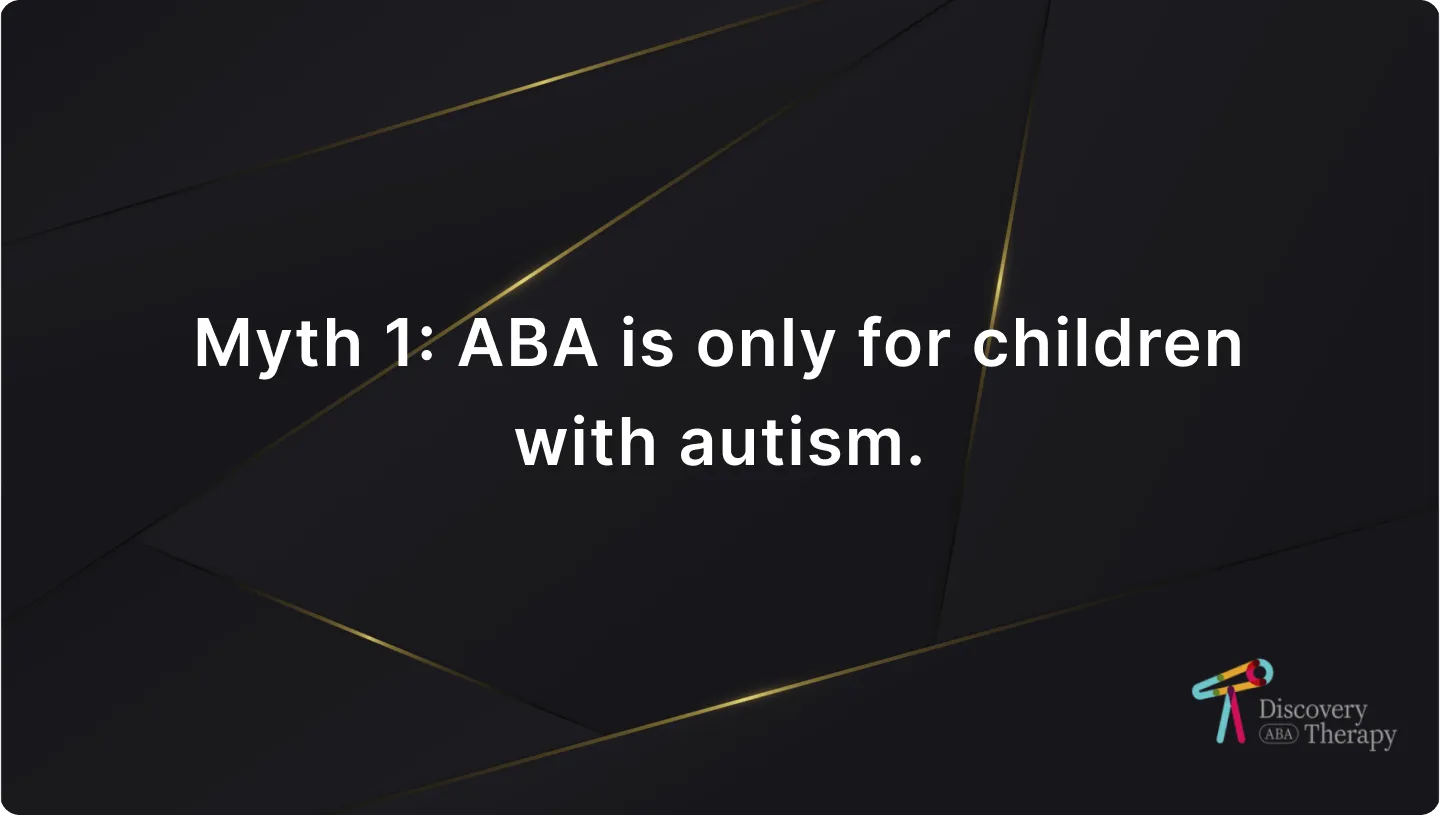
False - While ABA is commonly used to treat autism spectrum disorders and other developmental disabilities, it can also be beneficial for those without any diagnosed issues or disorders. It may even help parents by providing better guidance on decision making and problem solving skills in their children.
Additionally, educators may use it to teach students new concepts or materials more effectively. Therefore, anyone at any age can benefit from ABA techniques as long as they have a qualified professional to guide them through the process.
Myth 2: ABA is harsh and rewards-driven.
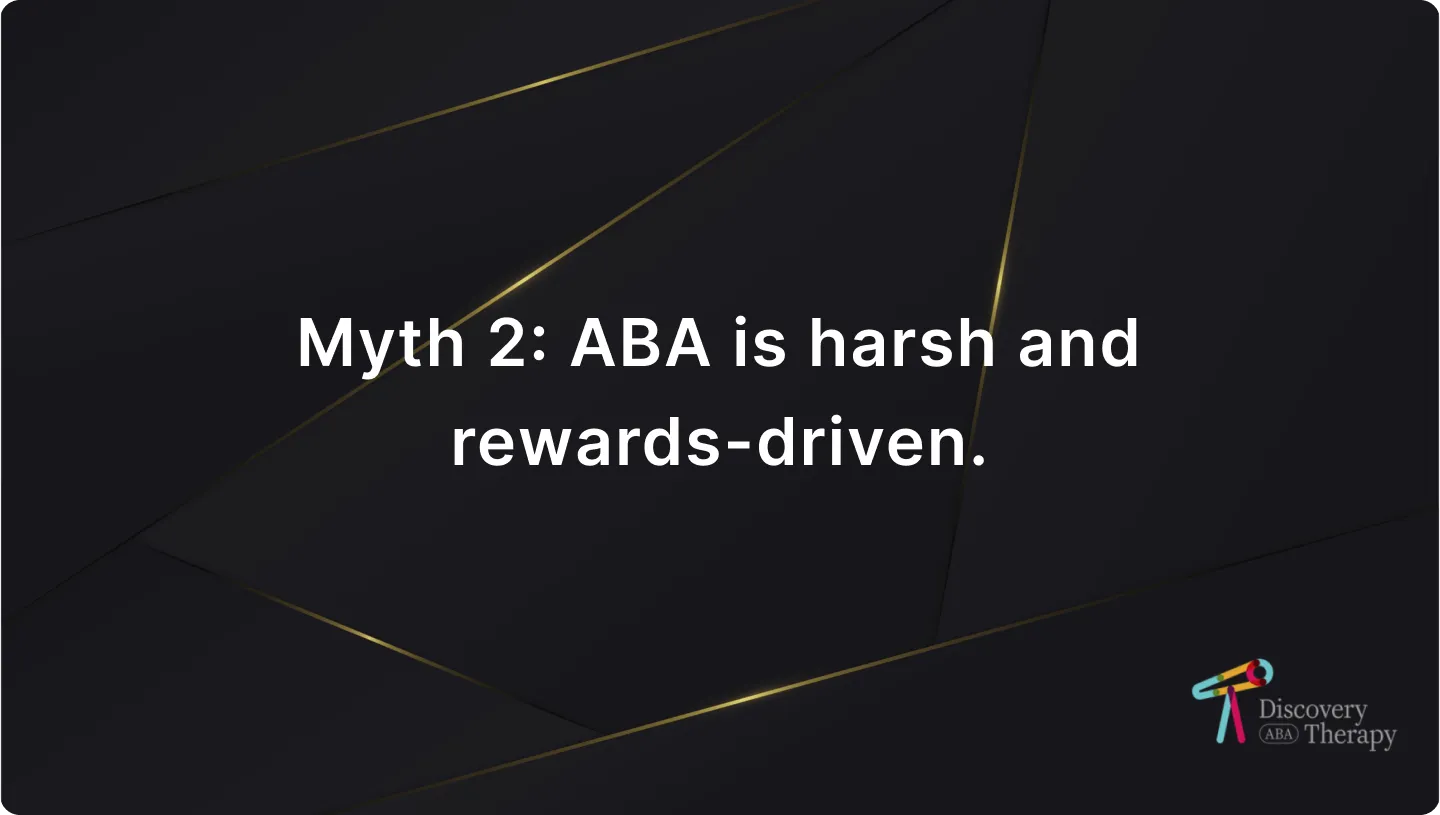
False - ABA therapy is not only about rewards and punishment. In fact, it seeks to understand why someone behaves in a certain manner so that more effective solutions can be created. It is also important to note that while reinforcement and consequences are part of ABA therapy, they should be used responsibly under the guidance of a qualified professional.
Myth 3: ABA only focuses on reducing unwanted behavior.
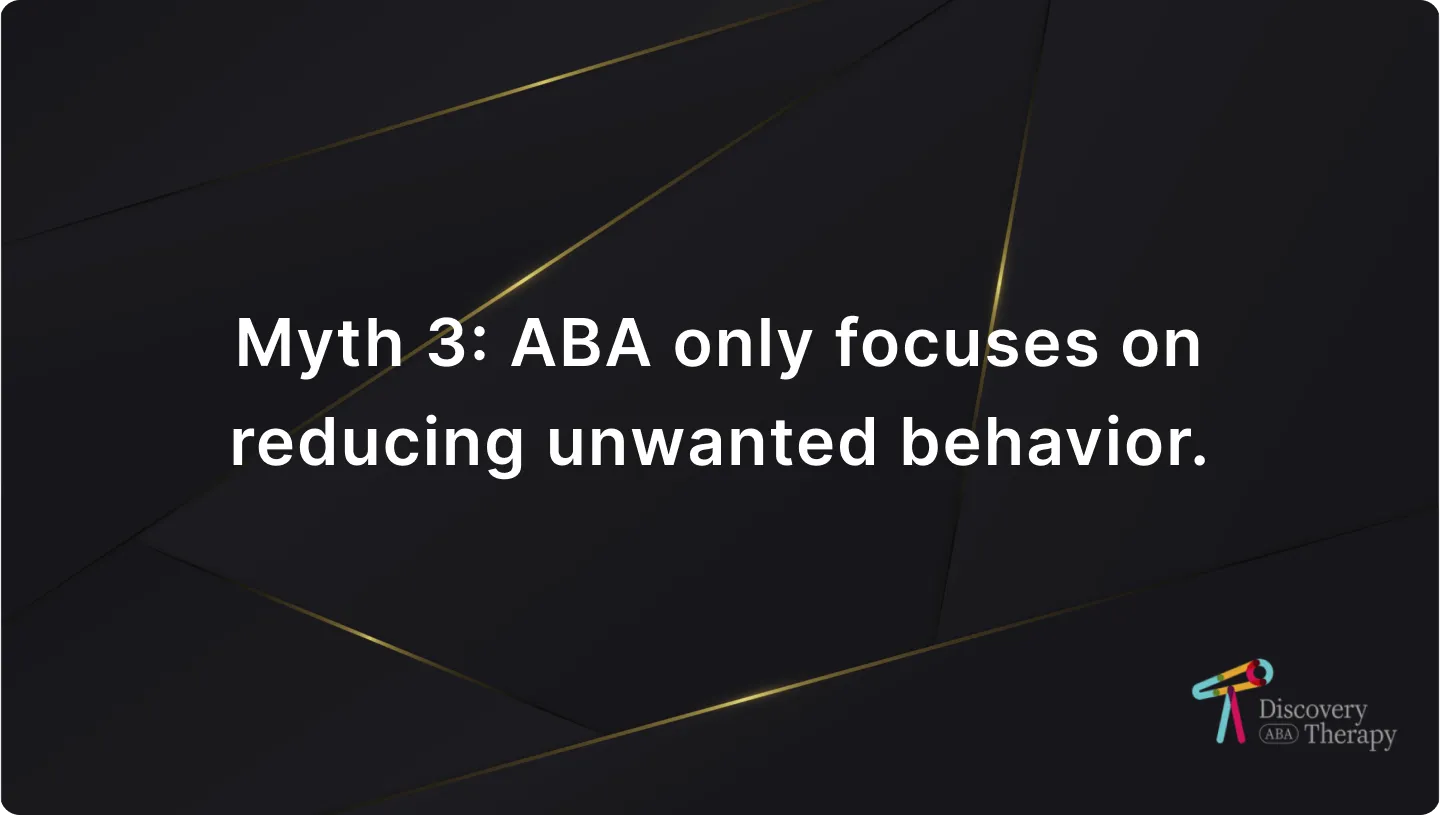
False - While ABA is often used to reduce challenging behaviors, it can also be used to increase positive behaviors as well.
Through this approach, individuals can learn skills such as communication or social interaction which will help them become more successful in daily life activities.
Additionally, ABA techniques such as prompting and fading are designed to help individuals learn how to complete tasks independently.
Myth 4: ABA is only used to change behavior.
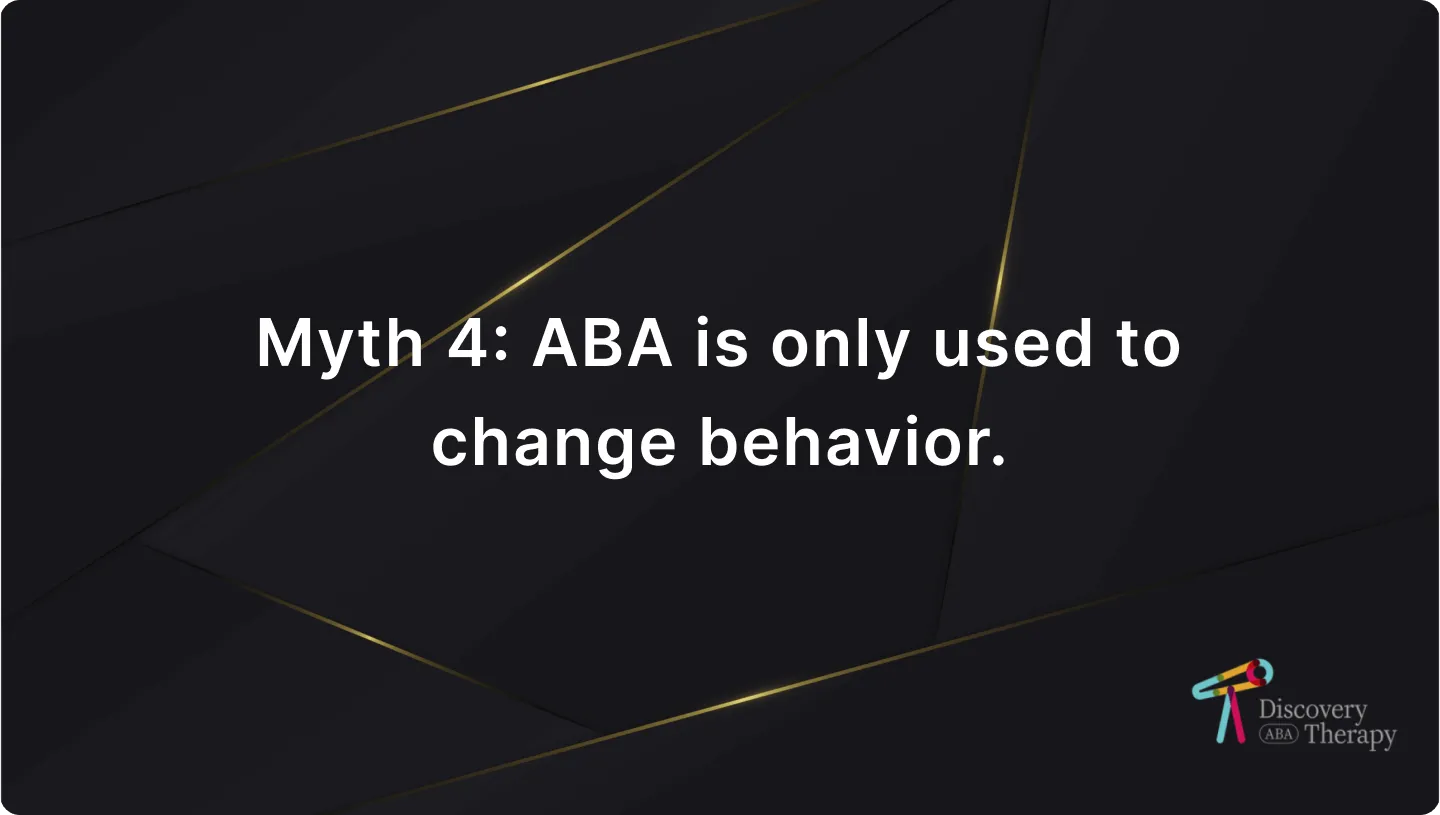
False - ABA is a broad approach that focuses on understanding why someone acts in a certain way and how to use that knowledge to create better outcomes. It also works to increase positive behaviors such as communication and social interactions, while also providing support for those who may need it.
Myth 5: ABA therapy is a “quick fix” solution.
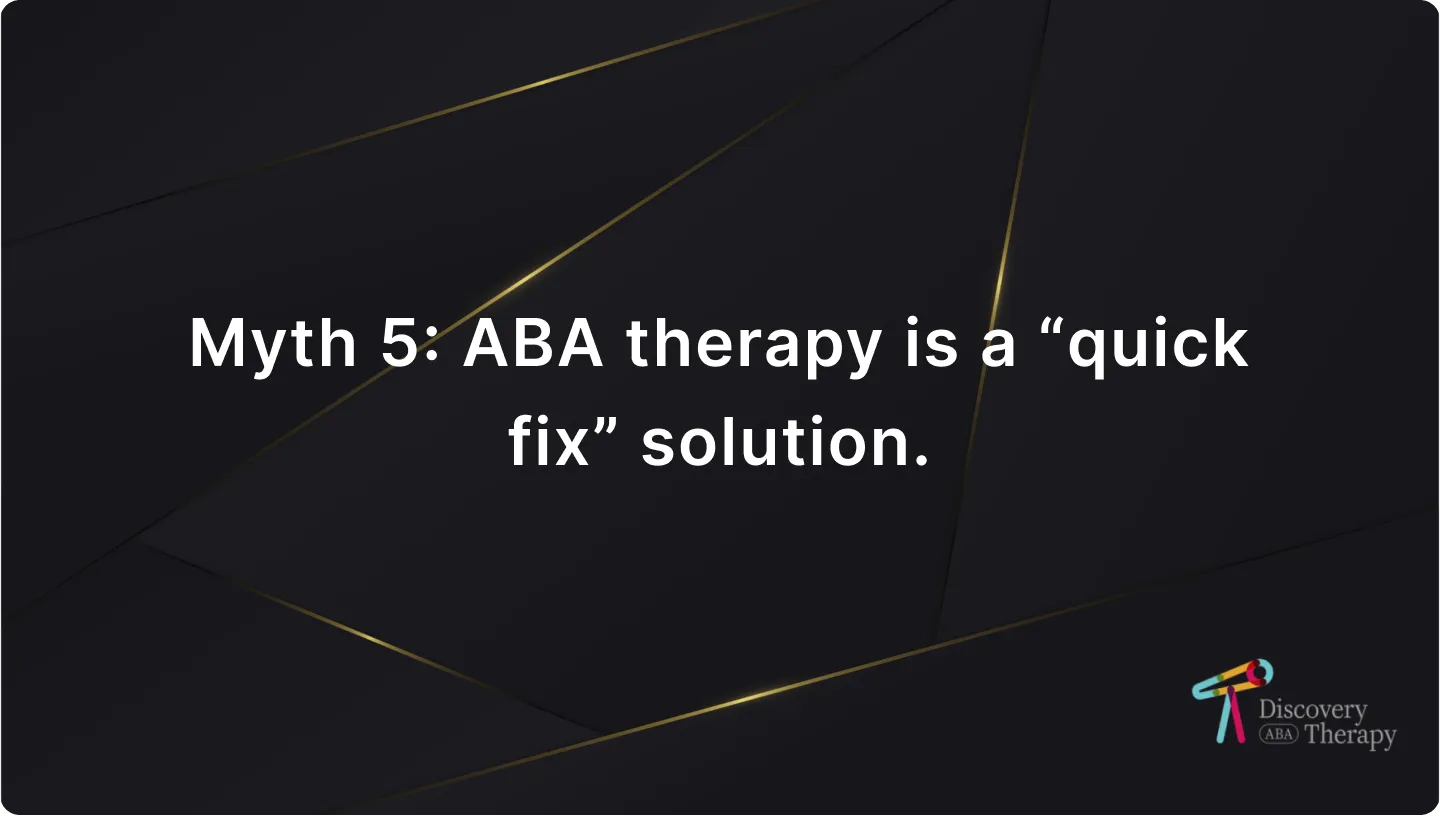
False - ABA requires dedication, patience and guidance from both the individual receiving the treatment and the qualified professional guiding them through it.
In order to experience results, an individual must be willing to commit time and energy into building new habits and changing their behavior for the long-term. It is important to remember that there are no magic solutions, and ABA therapy takes time to develop and yield the desired results.
Myth 6: ABA therapy replaces other treatments or therapies.
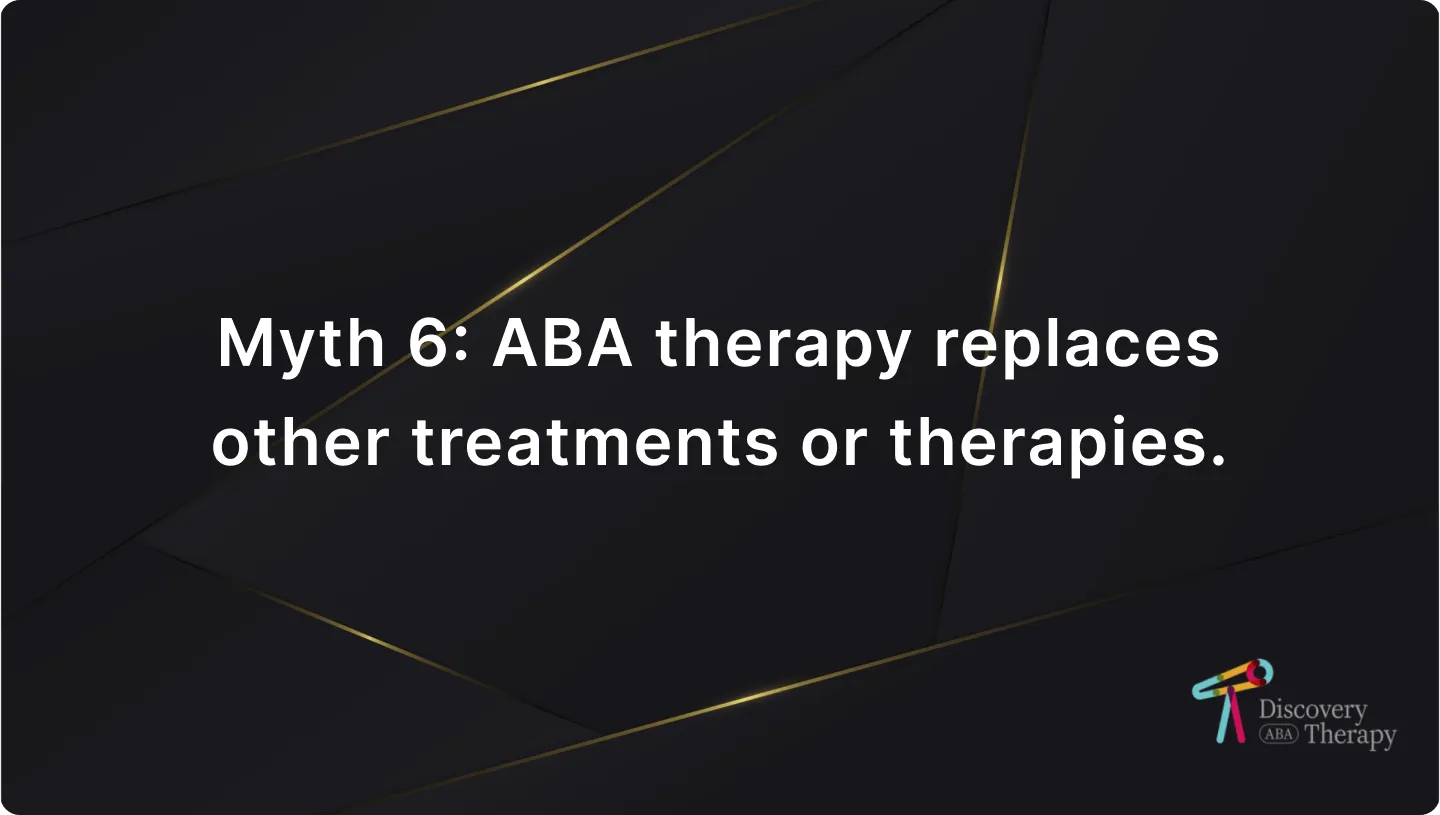
False - ABA can be used as a standalone treatment, but it’s often most effective when combined with other approaches. For example, if an individual has been diagnosed with autism, they may also receive counseling or speech therapy in addition to ABA services in order to get the best outcome possible.
Each individual case should be approached holistically and all potential treatment options should be considered before choosing one approach over another.
What Else Can ABA Therapy Be Used For?
ABA therapy can be used to help individuals in a variety of ways. It can provide better guidance on decision making and problem solving, assist with communication and social interactions, improve learning skills as well as increase independent functioning. Additionally, ABA techniques can also be used for anger management, anxiety reduction, stress relief and more.
Ultimately, ABA is an effective tool that should always be conducted with the guidance of a qualified professional.
With proper direction and dedication it is possible to achieve success with ABA regardless of who you are or what your needs may be.
With the right approach and dedication, Applied Behavior Analysis techniques can have a positive impact on many aspects of life!
In conclusion, ABA therapy is a powerful tool that can be used to benefit individuals of all ages and backgrounds. It should always be conducted with the guidance of a qualified professional who understands the individual’s needs and goals and tailors their approach accordingly.
Through ABA techniques, it is possible to better understand why we do what we do, thus allowing us to become more aware and self-regulate our behavior in order to reach our goals.
Applied Behavior Analysis (ABA) is a versatile therapeutic approach that offers many benefits for individuals of all ages and abilities. While there are many myths surrounding ABA therapy, it is important to remember that the best way to ensure successful outcomes is to work with a qualified professional who can create an individualized plan tailored to your specific needs.
ABA therapy is an effective way of tackling challenges that may otherwise seem insurmountable. With proper guidance and dedication, it is possible to find success with ABA therapy regardless of who you are or what your needs may be.
It is important to remember that ABA should always be conducted under the guidance of a qualified professional and in conjunction with other therapies as necessary. With this approach, it is possible to achieve positive changes in one's life.
Does Your Child Have An Autism Diagnosis?
Learn More About How ABA Therapy Can Help
Find More Articles
Contact us
North Carolina, Nevada, Utah, Virginia
New Hampshire, Maine
Arizona, Colorado, Georgia, New Mexico, Oklahoma, Texas
.avif)




































































































